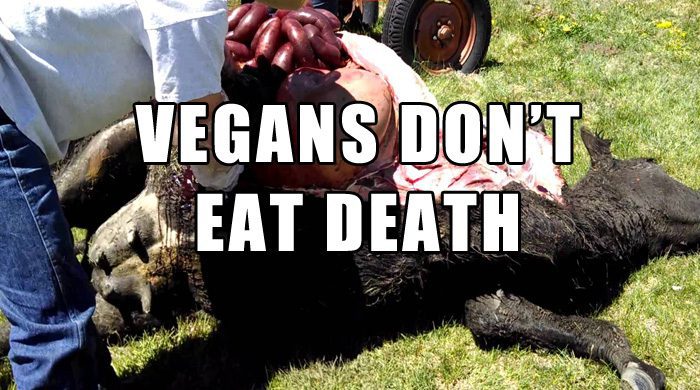What Do Vegans Not Eat?

Understanding what vegans don’t eat goes a long way in understanding an approach to life that supports a natural way of connecting to the world.
Our societies are being globalized into eating meat-centered diets, and veganism has become a necessary countermeasure in combating the destruction and proliferation of disease that is associated with diets centered on the consumption of meat.
People become vegan because for various reasons. Some people become vegan because they feel people shouldn’t eat animals, or they want to protect animals from animal cruelty, or they feel eating plant foods is the best way to support health and vitality.
Industries developed to support meat-centered diets in the United States alone are responsible for the killing and harmful treatment of over 9 billion animals a year, the proliferation of cancer and other diseases through the consumption of the meat products, the depletion of fresh water to water crops that are used primarily to feed animals, deforestation to clear land to grow crops to feed animals or for animals to graze, the overuse of fossil fuel to run the industries, and the increase in green houses that is supporting destructive climate change.[1]
What Do Vegans Not Eat?
The short answer is vegans don’t foods that come from animals or animate things like meat, fish, dairy, eggs, or honey. Vegans also don’t eat processed foods that contain products or additives derived from any of the previously mentioned foods.
Vegans differ from vegetarians because some vegetarians consume dairy products and eggs, but vegans avoid consuming these foods because they are derived from animals.
Meat-Centered Diets Support Animal Cruelty and the Proliferation of Disease
Unnatural and inhumane methods of factory farming of animals have been developed to support the needs of meat-centered diets.
Some vegans avoid eating meat products solely so they don’t support this animal cruelty. Some vegans avoid eating meat to avoid eating animal products that have been contaminated with disease as a result of the factory farming practices.
The unnatural, overcrowded, and unsanitary conditions of factory farms promotes the proliferation of disease in people who consume the meat.
On top the proliferation of diseases like E.coli, salmonella, H1N1 (Swine Flu) and Avian Flu in factory farmed animals, the processing of meat which includes the use of additives and preservatives has led the World Health Organization[2] to classify the consumption of processed meat as “carcinogenic to humans,” and red meat as “probably carcinogenic to humans.”
This group 1 classification which places the consumption of processed meat in the same classification as cigarettes, alcohol, and arsenic.
Foods And Ingredients Vegans Don’t Eat
Vegans don’t eat meat which includes:
- Beef
- Chicken
- Lamb
- Deer
- Goat
- Pig
- Any land animal
Vegans also don’t eat fish and sea animals which includes:
- Tilapia
- Swordfish
- Shark
- Snapper
- Snails
- Lobster
- Crabs
Vegans also avoid the consumption of products that come from animals like eggs and dairy which includes:
- Ice Cream
- Milk
- Cheese
- Yogurt
- Gelato
- Kefir
- Sour Cream
- Whey
These are the most obvious food products that vegans can more easily avoid. It is more difficult to avoid to consumption of animal based products that are part of processed foods.
Some food products are also deceptively labeled and appear to be vegan or vegetarian, but when you check the ingredients you may find many animal derived ingredients.
Alcoholic Beverages
Some alcoholic beverages or filtered using isinglass, egg albumen, or bone char.
Beeswax, Bee Pollen
A wax secreted by bees.
Bone Phosphate
Anti-caking agent.
Casein
Casein is a protein derived from cow’s milk and you may find it as a ingredient in cheese made from soy.
Cochineal, Carminic Acid, Carmine, Natural Red 4 – Coloring
“Natural” red coloring made from crushed cochineal insects with bright red shells.
Disodium Inosinate
Flavor enhancer primarily derived from animals and fish.
Gelatin
Gelatin is a protein extracted from boiled bones, ligaments, skin, or tendons. It is usually obtained from cows or pigs.
Glycerol
Often a byproduct of soap made from animals.
Lactic Acid
Can be from whey protein in milk, or from plant sources.
Lanolin
Lanolin is also known as the wool fat of sheep.
L-cysteine
Improving agent derived primarily from animal, human hair, and feathers.
Lecithin
Obtained from animal fat.
Magnesium Stearate
Magnesium salt often derived from animals.
Sodium, Potassium and Calcium Salts
Often derived from fatty acids from animals.
Vitamin D3
Vitamin D3 comes from Lanolin and is used in fortified foods like orange juice.
Whey
A protein in milk used in protein shakes.
The total list of additives and preservatives derived from animals is not only exhaustive, but is also linked to cancer proliferation so the consumption of processed foods should be avoided.
[1] The God-Awakening Diet
[2] World Health Organization Classifies Processed Meat As Cancer Causing






